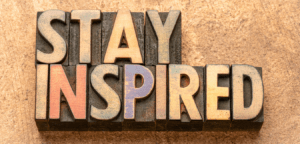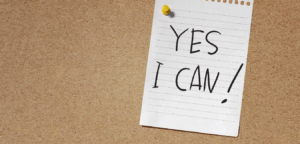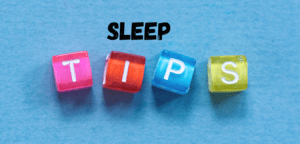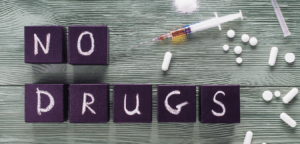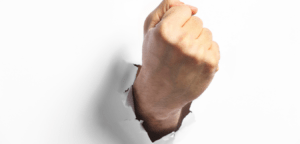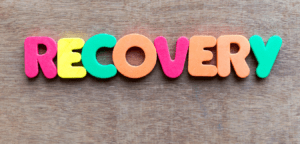
Once you have embarked upon the journey of getting clean, remaining sober can often times prove difficult, especially for those who have recently found sobriety or overcome addiction. While relapse can sometimes be considered part of the recovery process, by allowing us the opportunity to learn about the potential causes that may lead to unwanted drug or alcohol abuse, we hope to avoid them altogether by becoming more aware of some of the most common triggers associated with drug use and techniques to better cope with them.
If you have ever experienced a relapse, or are new to recovery, know that you are not alone, research suggests that between 40 to 60 percent of people who have recently undergone treatment for a drug or alcohol addiction will relapse within just one year of sobriety. One of the ways to keep from becoming a member of this statistic is to pay attention to cues or situations that can lead to this unwanted drug or alcohol use, below is a list of 6 common triggers and some additional tools so that we can hopefully avoid them:
⦁ Negative Emotions

After having masked negative emotions with drugs or alcohol throughout the span of an active addiction, learning to cope with these emotions in a healthy way can be one of the most challenging fundamentals to sobriety. Beginning to sit with these feelings can cause un comfortability and anxiety, especially when we have never confronted them before. Having a strong support system when we feel sad, confused or frustrated can help alleviate some of the stress that newly recovered addicts may experience. Joining a twelve step program and finding the right sponsor, seeing a new therapist or a counsellor, and even going to a gym can be a great start in learning how to cope with these emotions in a healthier way. By allowing ourselves to feel these negative emotions and openly communicating them, our comfort level will begin to increase as we see that eventually these feelings do subside and that we had the strength to face them without the use of drugs.
⦁ Do you need to H.A.L.T.

Emotions play a major role in recovery and getting to know your body is a key step towards remaining sober. Are you hungry, angry, lonely, or tired? Knowing when to listen to these feelings and having an action plan to resolve them will ensure that you are not reaching for drugs or alcohol and that you are giving your body what it needs instead. Try setting aside time for meal planning if you find that you get hungry around a specific time of day, practice good sleeping techniques before bed if you have trouble falling asleep or plan for an emergency cup of coffee if you begin to feel sluggish throughout the day. You can always attend a 12 step meeting or call a trusted friend, just by understanding these needs we can effectively avoid the trigger.
⦁ Dating and Relationships

Finding love is one of the most amazing things you can experience in life. Relationships can also cause a lot of stress which could trigger a relapse into drug or alcohol abuse.
Often suggested, but commonly ignored, is the advice to steer clear of any romantic involvement (no matter how casual) within the first year of recovery. There are many reasons why dating early in the recovery process should be avoided, addiction is a disease of emotion and new relationships come with many, they may begin to replace the substance and form an addiction of their own. Abstaining from any kind of sexual relationship when new to sobriety will assure that healthier coping mechanisms are being established instead of putting yourself at risk for relapse from the emotional stress of a new relationship. Also, by waiting till we are healthy enough as an individual to begin dating again will only increases the likelihood of finding a more suitable partner.
⦁ Times of Celebration

Birthdays, holidays, and other times of celebration are usually associated with positive emotions but when new to recovery it can be a trigger for drug use. It may not be realistic to expect that you can simply just skip going to all of these events but knowing what to expect when you get there can decrease the chance of falling back into old habits, especially when considering going to a place where drugs or alcohol may be involved. Many recovering addicts feel that they are able to control themselves and their addiction by “just having one”, we know that this is a common misconception. By preparing yourself before the party, you can limit your exposure to these triggers, ask others in attendance what kind of substances will be there and have a support system set in place by bringing along a sober family member or friend who can help remind you how important your recovery is and deter you from any potential relapse.
⦁ Professional Success

Alternatively to negative emotions, positive experiences can also be a trigger for unwanted drug use. Have you just landed a new promotion at work or have you finally gotten that long sought after raise? Be careful not to fall back into the old mindset that you have somehow overcome your disease by attaining this accomplishment. A mistake often made by people in recovery is that they are now cured because an addict could have never cultivated this achievement. It is all too easy to want to go out and celebrate, just like old times, but we know by now that addiction doesn’t just go away. Make sure that you keep your support system in place by sharing your thoughts and emotions with others in the event that you are headed for a relapse.
⦁ Overconfidence

While having confidence in yourself during recovery is a good thing, becoming too confident can be a potential trigger and lead to a relapse, as many forget the importance of their recovery plan. It is easy to feel as though you have conquered your addiction as the day to day struggles of sobriety seem to lessen but reminding yourself that you are still susceptible to triggers can go a long way in continued sobriety. Staying in contact with your sponsor or therapist, attending regular meetings, and staying humble about your addiction are essential to a life of sobriety. If you find yourself getting complacent or feeling as though you are now above your addiction, consider mentoring someone who is newer in their path to recovery and remind yourself that staying sober requires a conscious daily effort.
We know that sobriety is a lifelong journey and that it will require hard work on a daily basis in order to sustain, no matter where you are in the process. Staying vigilant to your recovery plan and maintaining a good support system lessen the chances of giving in to these triggers that may lead to an unwanted relapse. Take some time to think back upon instances where you felt triggered or had a craving to use drugs or alcohol and come up with your own plan of action to avoid them. Share them with your sponsor, a therapist or a trusted family member or friend in order to remain accountable for your recovery process!

